While lawmakers debate decriminalization and the trend of overincarceration over the past three decades, centers of higher education are trying to do their part by providing help to those who have served time and looking for a second chance at life.
One such program is the Transformative Justice Initiative in Missouri. It is a program operated through Saint Louis University and teaches both formerly and presently incarcerated men and women how to change their lives for the better. The program focuses on helping people be successful and join the job market upon release.
Through eight-week programs with an occupational therapist, inmates can gain the tools they need to become productive members of society. They are given an opportunity to find employment and are continually encouraged. The Missouri-based program, which began in February 2017, has helped over 40 inmates.
Father Christopher Collins, a Roman Catholic priest, is the assistant to the president for Mission and Identity at Saint Louis University. He is a major backer of the Transformative Justice Initiative and involved in the societal re-entry portion of the program.
“I try to informally coordinate a bit, to tell the story in a bigger way,” he said.
A study conducted by The Bureau of Justice Statistics on recidivism — or re-entry into the prison system — showed that 68 percent of state prisoners released in 2005 had been arrested again within three years. Within the next nine years, 83 percent of released prisoners were re-arrested.
None of the former inmates involved with the Transformative Justice Program have returned to jail after being released.
Collins said the city of St. Louis recognized the lack of constructive help for current inmates. The city hired Brittany Conners, an occupational therapist at Saint Louis University, to work inside the jails and provide rehabilitation programs for small cohorts of eight to 10 people at a time. The program operates for five hours a day and teaches people the skills they will need upon release. The program mainly focuses on providing skills such as planning, financial management, practicing positive habits and creating a space for the clients to discover what their own unique gifts are. The clients are then guided on how to turn those gifts into a career path.
Conners spends much of her time interacting with people serving time and helping prepare them to re-enter their communities.
“I provide pre-rehabilitation programs before they are released,” Conners said. “I coach them on how to find a job.”
Conners says the pre-rehabilitation portion of the program is crucial to the successful life of the individual once they leave the jail.
“We are able to help them live the lives they want to on the outside,” she said. “Once they are released in the community, we do continue occupational therapy services. We help them prepare for job interviews. Once they have a job, [we help them learn] how to keep that job.”
Many students at Saint Louis University are also involved in service at the city jails. Student athletes play basketball with inmates who would otherwise be sedentary. Nutrition and dietician students help coach them on how to grocery shop and fuel their bodies with the nutrients they need, while those studying photography have been able to get inside footage of classrooms where the program takes place.
Conners said that even after the program has ended or a person has been released, they still offer help and continue to give them the resources they need, whether that be obtaining an I.D. or transportation to a job interview.
“We see them in person, we can talk to them via phone, email, and text messaging,” Conners added.
The Transformative Justice Initiative is also an attempt to change how society views incarcerated people and promotes interaction with them on a personal level.
“These are people who have never been given opportunities or space or education. They have been derived of many experiences that other people have,” Conners said.
A report from Prison Policy Initiative noted inequalities between the education levels of formerly incarcerated inmates and the “general public.” Conners said there are some other universities with similar programs dedicated to prison outreach, but there are none with fully-funded positions such as her own. The Transformative Justice Initiative is also the only program that operates with a pre and post release model.
“We as a country are saying this is being done all wrong and [seeing] what we can do to liberate folks,” said Conners.
Reported and written by Brooke Sargent and Kassidy Vavra

